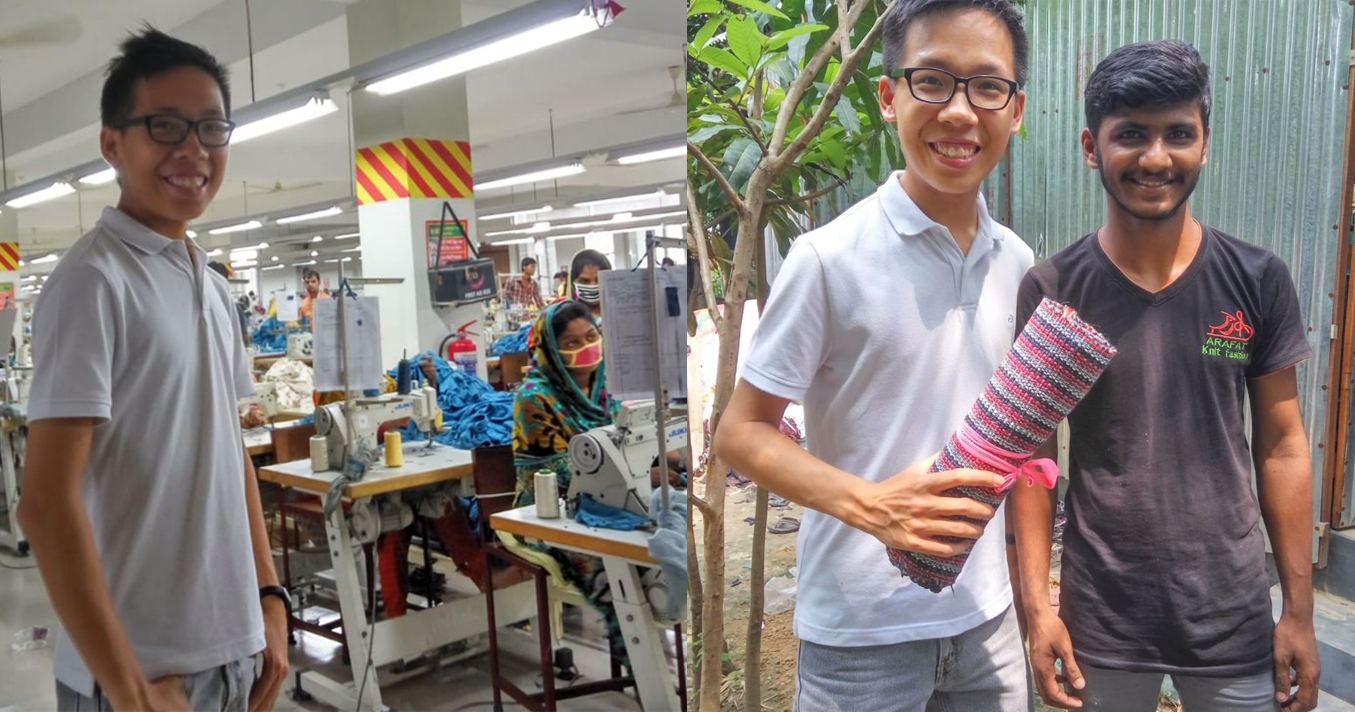Edward Yee considered himself "pretty happy" about being dyslexic when he was young.
Diagnosed at the age of 11, the only thing that mattered to him back then was that he did not need to take Chinese examinations.
"That was one huge headache that was taken care of," Yee chuckles.
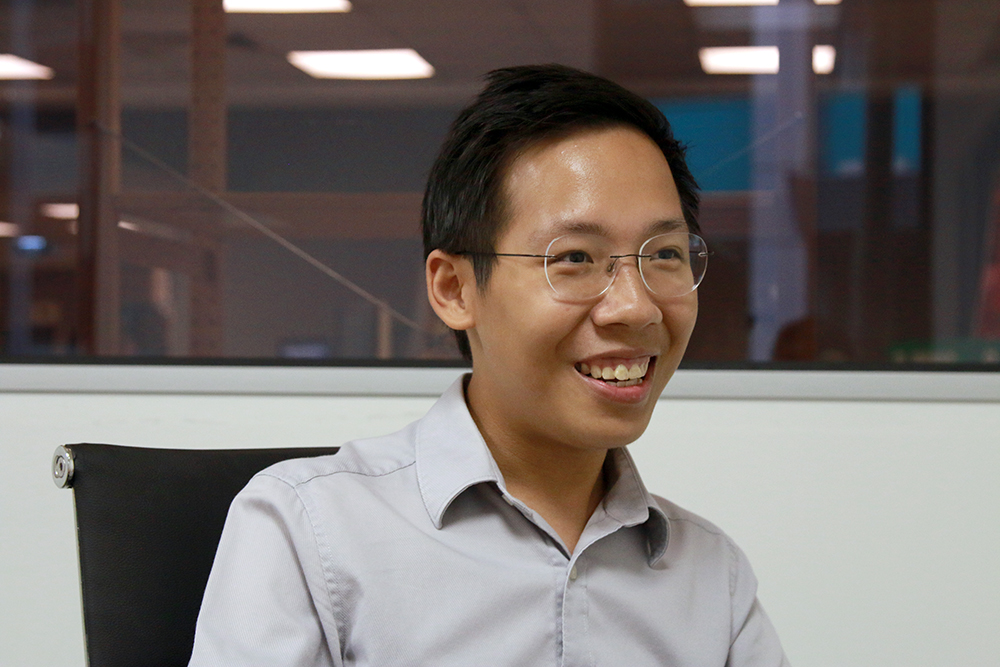 Photo by Ilene Fong
Photo by Ilene Fong
Today, the 24-year-old has overcome the odds and managed to graduate with a Business and Accountancy degree from NTU, clinch the prestigious 2019 Singapore Rhodes Scholarship, and found New Delhi-based Givfunds Social Venture, an impact investing start up which lends low-cost loans to social entrepreneurs.
More importantly, Yee insists that he is where he is today because of dyslexia, not in spite of it.
"I saw it as just a different way of thinking, and that different way of thinking should be used as a strength. Our education system might not be designed for dyslexics. But that doesn’t mean you don’t succeed," he said in a 2018 interview.
It's a refreshing take on a condition that is commonly thought of as a "learning difficulty". It is also one that not many people are familiar with today.
What dyslexia is like
"The simplest way to describe it to people is that we see the world in images rather than in words," says Yee.
On a day-to day-basis, dyslexia manifests itself in poor working memory and memorisation skills.
"I couldn't, for the life of me, remember those Physics equations for movement or acceleration, for example. I basically had to imagine someone moving or running and derive the equations from there. I didn't know the actual equations, but I used the same idea to solve those Physics problems."
As you might have guessed, Mandarin was also quite challenging because it requires character memorisation.
"No matter how you pronounce it, you cannot piece together the word from your pronunciation," laughs Yee.
"English is relatively okay, in terms of communicating and writing. But when it comes to spelling, sometime you just need to memorise the spelling. Even today, I'll have spelling mistakes when I write or type. It's just that I have autocorrect now."
To say that it was a struggle is an understatement.
Yee failed regularly in Henry Park Primary School and the first couple of years at Saint Joseph's Institution. More often than not, he found himself in the bottom 20 per cent of his class.
It only got better when his education shifted to become more concept-based instead of rote memory in National Junior College.
In order to help him study, Yee's father used to highlight his notes, with different colours marking out different concepts, making it easier for him to link various concepts together and picture them in his mind.
Evidently it worked because not only is Yee about to graduate from NTU with a double degree, he is also using his knowledge to run a growing start up which loans money to social entrepreneurs in need of capital.
A life-changing trip to Bangladesh
Helping social entrepreneurs was never Yee's dream when he was growing up.
"I wouldn't say that I grew up particularly empathetic or charitable," Yee chuckles.
Yee's parents used to work in corporate finance and in some ways, their work rubbed off on him. In fact, he used to dream of becoming a fund manager.
While he used to volunteer at a non-profit, Youth Horizons, and founded the Dyslexia's Association of Singapore's Alumni department, Yee never really found meaning in his work.
"It was important, but it wasn't particularly impactful for me," he says.
All that changed in 2016, during his first summer break as a Nanyang Technological University undergraduate.
Yee joined a month-long programme with a think tank, the Yunus Centre in Dhaka, Bangladesh, to learn about social enterprises and businesses.
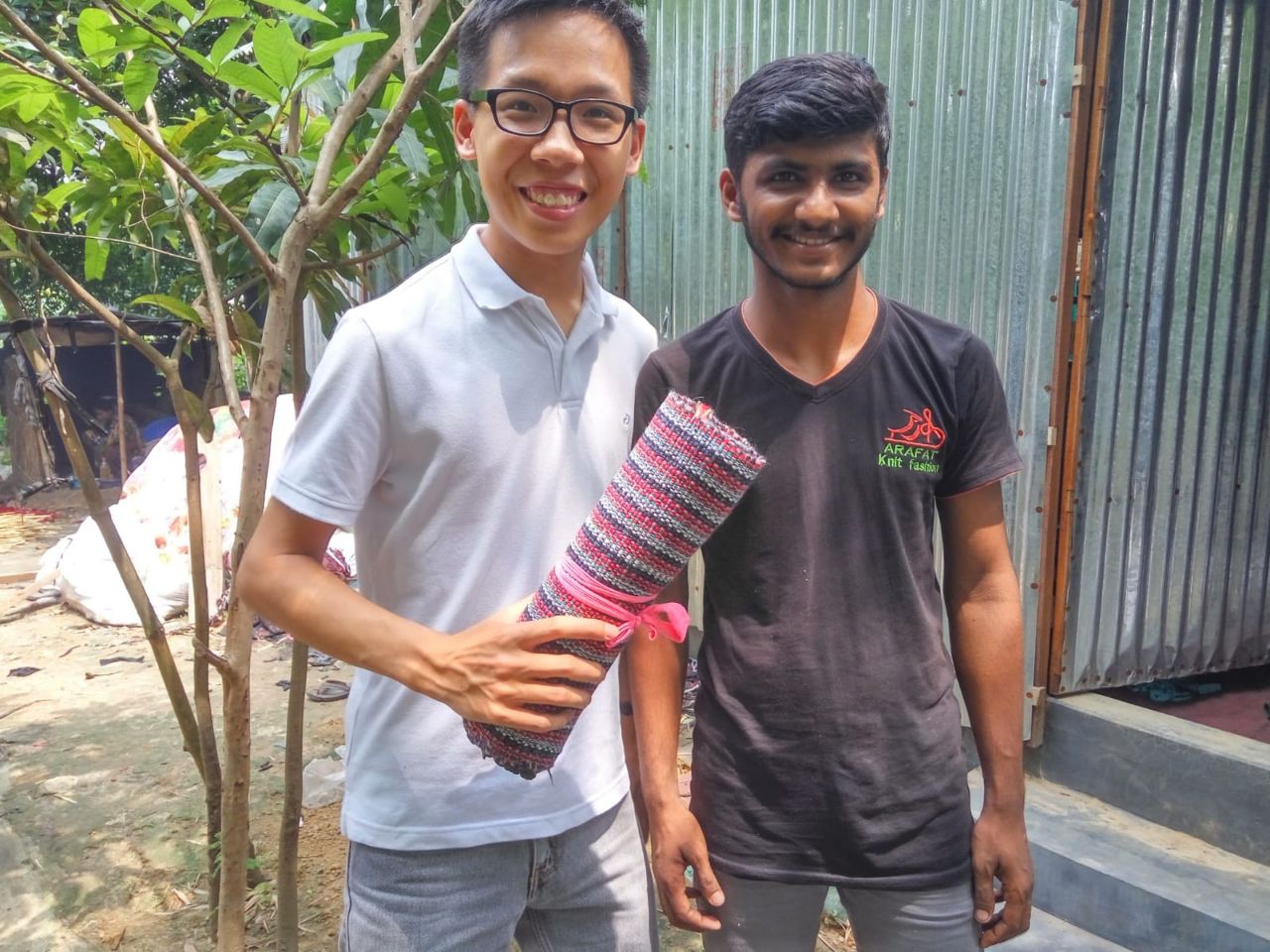 Courtesy of Edward Yee.
Courtesy of Edward Yee.
It was a life-changing experience.
"I had incredible experiences with people. I met people who were from situations and backgrounds which I never expected. In Bangladesh, people were opening up their homes and inviting me to stay with their families on the first day they met me. Every five minutes on the street, someone would come up to me, talk to me, show me around, maybe take a photo with me."
On using his "privilege" for good
More stark was the difference in how Yee was treated, as a foreigner, compared to the locals. He recounts this particularly heartbreaking story:
"I was travelling on top of a train in Bangladesh, because that's what you do in Bangladesh, everyone stands on top of the train. And so we popped up as well - me and three other foreigners - and it was incredibly fun and everything.
But standing on top of the train was dangerous for everyone, especially us. So the conductors got a bit pissed off, stopped the train, and called the cops. The four of us were called down. There was this local who helped us on top of the train - he gave us a hand up. He was very kind, really, like many of the locals.
And the cops handcuffed him and started beating him with sticks. They punished him to teach us a lesson because they couldn't punish us foreigners."
"The fact that I'm born into such privilege, in a country like Singapore is something which all these experiences helped me see differently," he says.
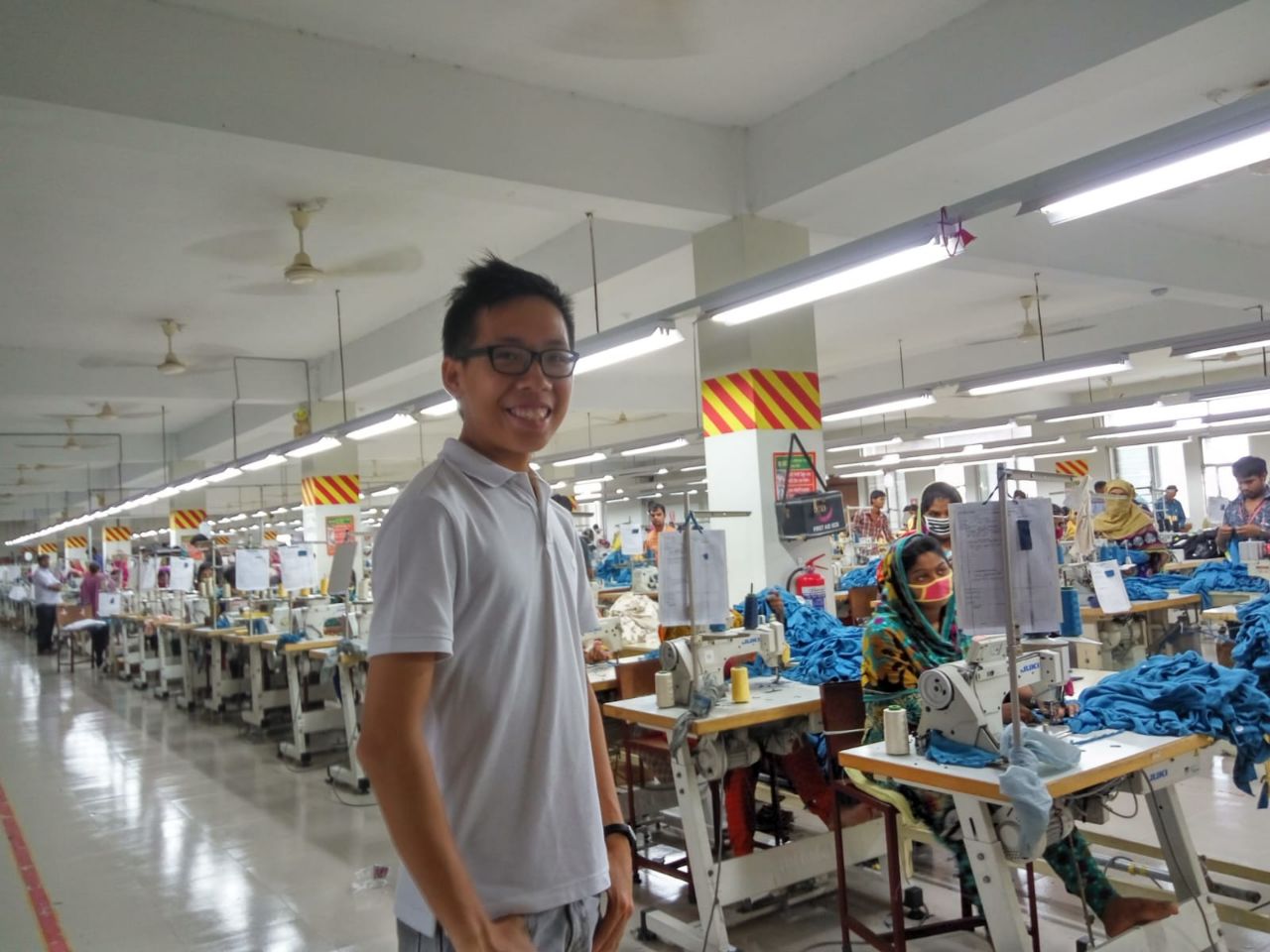 Courtesy of Edward Yee.
Courtesy of Edward Yee.
Speaking of privilege, Yee admits that while his family was not crazy rich, they were better than most, especially when compared to the rest of the world.
"It's not like I can open my own foundation and my family will give me a million bucks," Yee laughs.
"But it's not that I had to struggle. I didn't have to work when I was in school. Putting the next meal on the table wasn't an issue either."
In some ways, being relatively well off insulated him and subsequently led to a bigger shock when he realised the disparity between his life and the lives of others around the world.
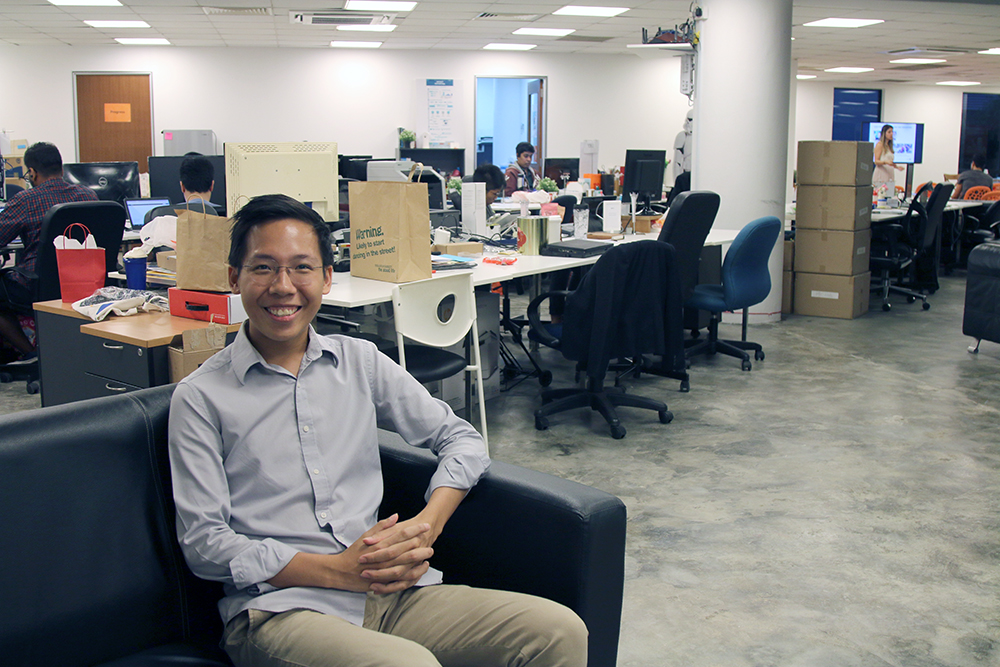 Photo by Ilene Fong
Photo by Ilene Fong
Throughout his month-long trip to various Southeast Asian social enterprises, Yee came to see that kindness and generosity was a pervasive characteristic among social entrepreneurs
It changed his perspective of what poorer people should be.
Recounting his time in Vietnam, Yee shares how he was invited by a group of transgender sex workers to after-work beer, where they swapped stories.
Without a doubt, these were people who have gone through hard times in life. But hearing their stories, Yee realised that these people were not defined solely by their hardship:
"They don't have that kind of pity me [attitude]. They've got their own aspirations, their own families, and everything. Hearing their stories and life experience, it helped me empathise with them."
Could it be that as a dyslexic, Yee can empathise, given that that his condition tends to overshadow all of his achievements, especially in the media?
"I've never actually thought of it that way, but I guess that's sort of true," he laughs.
In a way, Yee can't seem to escape this label.
Truthfully however, his dyslexia today doesn't affect him as much as it did in school, simply because he has learnt to adapt by implementing what he calls "micro adjustments" to his daily life.
"For example my email, I keep a "zero inbox" policy, everything is filed properly so that if someone talks to me about something, I know I can't remember it but I know exactly where to find what was said."
In a way, being dyslexic empowered Yee to see and do things differently.
Similarly, his experiences in his month-long programme culminated in a desire to empower social entrepreneurs who are not getting the help they deserve.
"I saw the amazing work of these social entrepreneurs. They were running impactful businesses, changing thousands of lives," he says.
"But again and again, I saw that they were unable to scale their operations. They could not get enough support. How could the people who are arguably doing the most for humanity be unable to get enough resources to change more lives?"
Lending money to people who need it
As someone who has a background in finance, Yee could understand why people don't want to invest in social enterprises. But the injustice of it kept gnawing at him.
From there, Yee saw his purpose - as an enabler for social enterprises on the ground to help them do the work they do best.
In end 2016, Yee met his co-founder, Irwan Malhotra the founder of a debt consulting firm which helps small and medium enterprises structure debt deals so that they can borrow from international banks.
Both realised that they can do something for social enterprises which need capital.
That was how Givfunds Social Ventures came about in India. In a nutshell, Givfunds is a trust which lends social enterprises at scale. These loans come with low interest rates of about zero to four per cent per annum which then help these enterprises scale their operations and help more people.
This interest rate might not seem low, but according to Yee, it is low enough for Indian social enterprises to borrow and put into an Indian bank where it can gain interest of between six and 10 per cent.
Givfunds approaches philanthropists, family offices, and high net worth individuals to ask them for donations. The donations are locked in a fund and then lent out to social enterprises.
When the money is repaid, Givfunds uses the interest to cover its cost and then lends the money out to another social enterprise.
The social enterprises that receive these loans span different sectors in South and Southeast Asia, including healthcare, agriculture, crafts, and livelihood.
To date, Givfunds has given out 11 loans throughout India and Singapore, since it started operations in 2018. It hopes to give out about 80 to 100 loans in 2019.
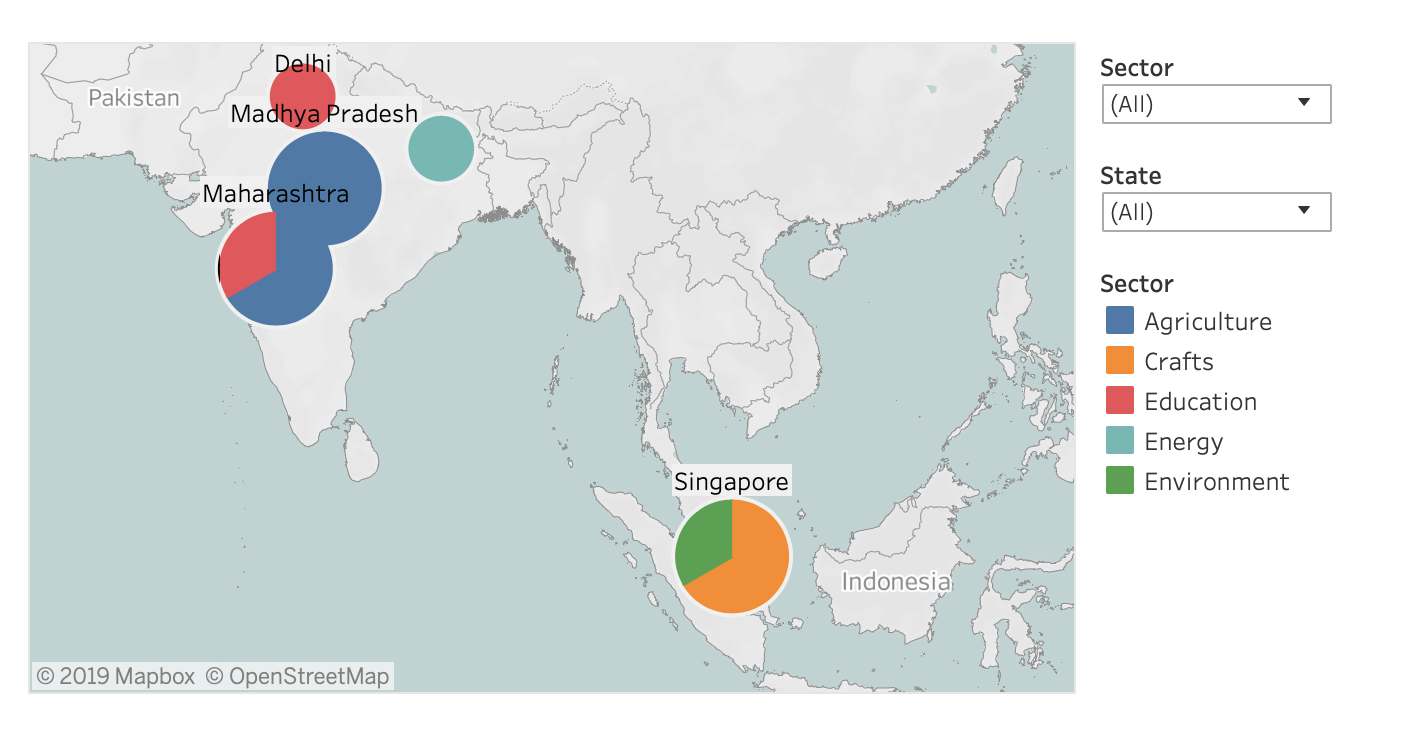 Via GivFunds.
Via GivFunds.
Givfunds is also partnering social enterprise aggregators across India, such as Ashoka University, Unltd: India, and the United Nations Development Programme to gain access to more social enterprises in need.
One such person who benefited from Givfunds was Eleena, a youth-wing worker at the Tihar Jail in India.
According to Yee, recidivism rates at Tihar Jail is about 80 per cent.
"For many of them within jail, they don't understand that what they did was wrong. And for many of them, when they get out, no one is willing to give them a second chance"
Eleena developed a curriculum aimed at lowering recidivism rates and allowing them to reintegrate into society when they're out.
This curriculum covers English lessons, Hindi lessons, and classes on morality.
Givfunds lent Eleena the money to produce the curriculum which she then sold to the Tihar jail authorities.
From India to Rhodes House
The entire journey has been and continues to be an uphill one for Yee:
"Along the way, we had people who we respected so much who told us to quit, which was quite demoralising. There were huge ups and downs on a daily basis. Every single path we took, people said it's impossible, just give up, take another route."
However, he was resolute to stay on. In fact, Yee had actually planned to devote himself full-time to Givfunds upon graduation this year.
However, when the Rhodes Singapore Scholarship, which awards a study grant to "innovative, energetic, and ethical young leaders in Singapore" was reinstated in 2018, Yee felt that he could learn a lot from being among like-minded people who were devoted to creating value and impact for the world:
"I really believed in the vision of what they are doing - fighting the world's fight. And looking at the history of people who have gone through the [Rhodes scholarship], these are people who committed 30, 40 years of their lives towards changing things and pushing the human race forwards."
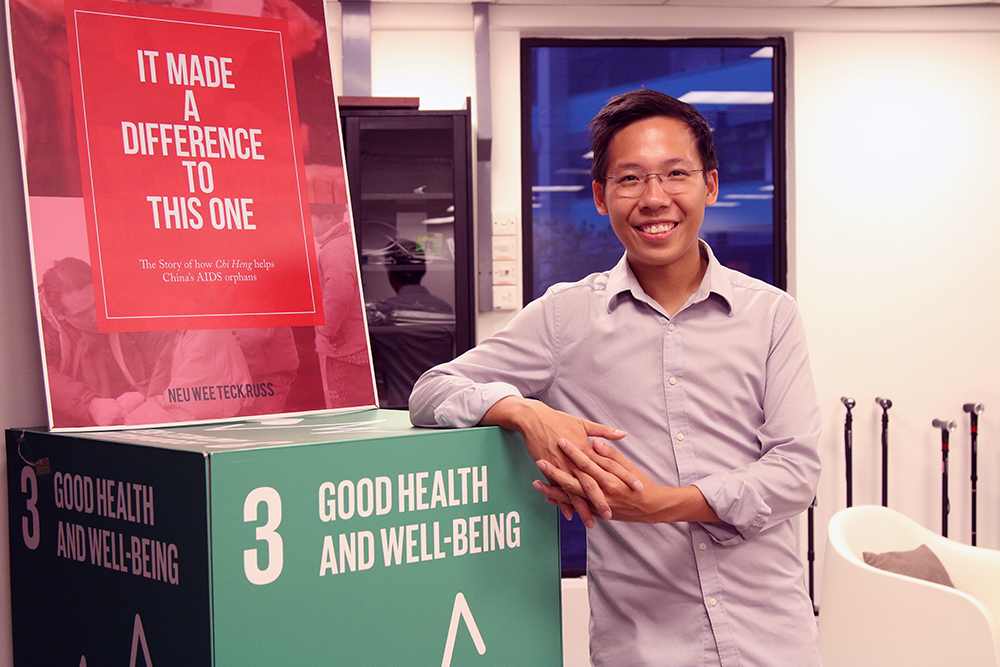 Photo by Ilene Fong
Photo by Ilene Fong
It wasn't something that he expected to get, says Yee who claims to be used to failure because he "applies for three, four things on a weekly basis".
"But I was attracted to the scholarship by that community, the people who are doing incredible things," he smiles.
Yee was told of his acceptance into the programme in October 2018, where he beat out several finalists who were in his words, "much more incredible and capable".
Yee will be using this scholarship to take up two Master's degrees that will help him learn more about impact investing and improve Givfunds.
As we wrapped up the interview, I am reminded that this man's journey to overcome the odds not just for himself, but also to better the world, is nothing short of remarkable. And I think we can look forward to greater things from him.
Photos by Ilene Fong.
If you like what you read, follow us on Facebook, Instagram, Twitter and Telegram to get the latest updates.
